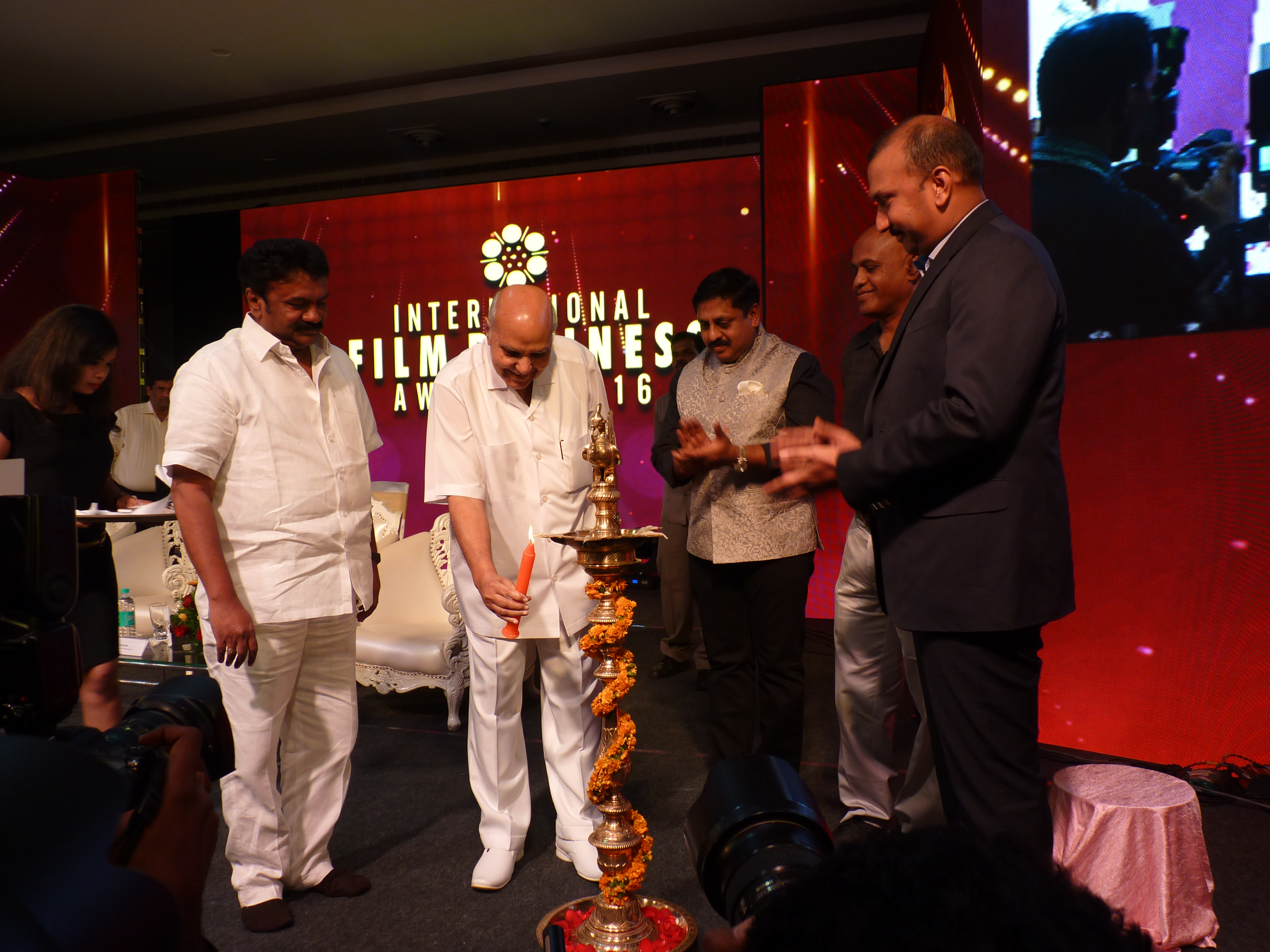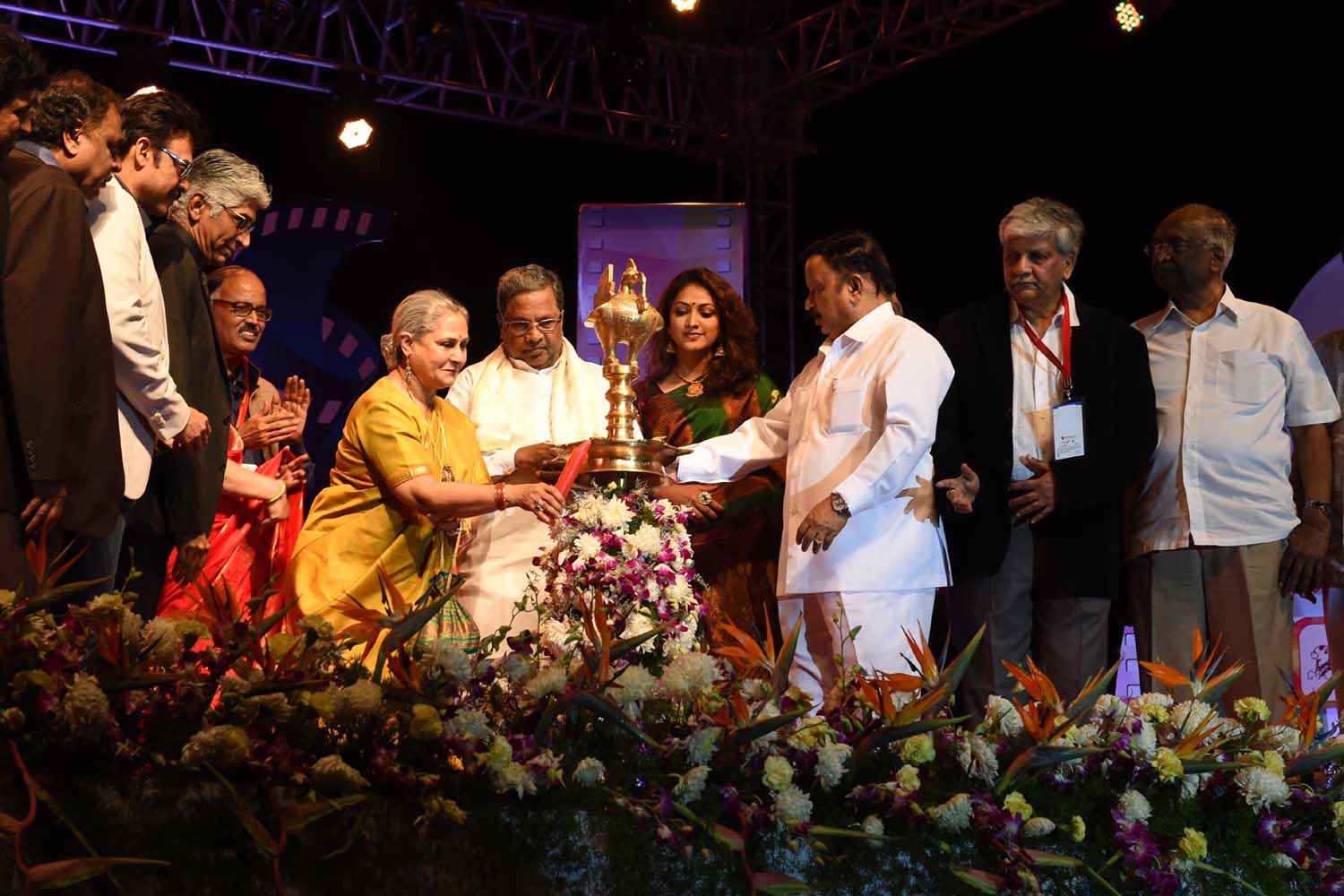At the perspective pith of Photo is an evocative parable of humanism and human foibles. It is a touching tale of a young school going boy in the distant Maski hamlet of Raichur town simply wanting to take an up, close and personal view of the State’s seat of power – the magnificent and monumental Vidhana Soudha.
What’s so special one may ask? Especially, the city bred young, and the fortunate denizens, privileged to have found a home in the sprawling, developed metropolis. After all, they pass by it, almost every day, in the course of reaching their respective destinations, without as much as a whit of a glance at it, given that it is registered in their psyche and collective memory.
But for the ten-year-old village school boy Durgya, Vidhana Soudha, whose almost life size picture hangs in his classroom, and, which, he surreptitiously spirits away to his humble homestead, after class hours, it is equivalent to visiting and soaking in the beauty of the marvelous Monument of Love – The Taj Mahal in Agra.
More the words Government’s Work is God’s Work inscribed on the entablature of the stately legislature structure that the photo bears. Further, having seen almost every other home in the neighbourhood proudly display the scenic shot of Vidhana Soudha with the family member emboldens the young lad to possess one as well with him and dad in front of it.
Least does the Soudha smitten, Photobewitched boy know that their daily subsistence rests on the modest sum his dad Gyana,engaged in daily grind of masonry work,at a construction site, dutifully sends home, to feed the family’s hand to mouth existence.
His overarching desire to have a dekko, as also a selfie, at the Vidhana Soudha stems from the fact that he can also visit his dad in the Capital City Bengaluru, the once peaceful Pensioners’ Paradise turned busy, bustling high rise Concrete Jungle, cajoles his mother Gangamma to acquiesce to his fervent imploring.
He believes he can spend quality time with dad during the school holidays while undertaking a recce of various tourist spots the city prides itself, besides, of course, as well have acherished “darshan” of his venerated screen deity D Boss – aka – Darshan.
Sadly though, as ill-fate would have it, his dreams, almost on the verge of being fulfilled, are cruelly stifled, when a nation-wide lockdown is declared confining every citizen of the country to home curfew in the wake of the fast and fatally spreading Corona pandemic.
Indeed, the aspiring, debutant film maker Utsav Gonwar had a downright winner on hand with the film pulsating with several thematic tracks to be creatively exploited. One, of course, the boy and his dream. Second, of how a once placid, peaceful city has gone to pits. Third, how skewed development has destroyed the soul of the city. Four, how driven by the innate belief the big city could fill their family bellies village folks have been migrating to the metropolis resulting in mass exodus in search of El Dorado.
However, unlike the young protagonist of his, the film maker, though had other personal ‘political’ and ‘activist’ priorities to pursue. Rather than provide a subtle and studied portrait of a cherubic boy and his small curiosity chiseled chimera, the Capital city and its new inhabitants and high rises providing for a “realty-reality” check, Gonwar sought to valourously wear his political leanings on his sleeve like a crusader.
As the director himself concedes in an interview with Deccan Herald “you still cannot play cricket with the power dynamics of caste, religion and money in my village.” He, further goes on to add, “most of our actions are political, and hence, films cannot avoid political conversations.” It is this very innate “provocative” “activist” pursuit in him that actually seriously puts paid to Photobeing a meaningful and measured piece of creative cinema without any petty nitpicking.
After all, not schooled and well-heeled in the Iranian cinematic idiom of film making whose film makers have made it a fine art of pitching children at the pivot of their allegorical socio-political dramas “killing two birds with one stone,”without so much as ruffling the political establishment or attracting their severe censorial strictures.
This, despite the fact that, the director, who discontinued his education during his 12th, eloquently eulogises to the influence of Vittorio De Sica’s Italian cinematic classic Bicycle Thieves and Iranian cinema’s very own celebrated auteur Abbas Kiarostami’s Taste of Cherry as his go-to films and aspiring to become a director in a big way.
Furthermore, with Vidhana Soudha, seat of political power, itself providing on platter the pivot, to project a searing, searching and reflective prognosis on the absence of political will, and effective governance, to reach the fruits of economic growth and developments to the lesser privileged and marginalised sections of society.
But that’s not to be. Gonwar, instead, wishes to take cudgels with the Centre, especially the Prime Minister, in order to turn Photo into a ‘titanic’ family tragedy and parody the jantacurfew that was announced following the Covid pandemic that throttled the world by the scruff of its neck.
Repeatedly using Prime Minister Modi’s telecast address to the countrymen on the nation-wide lockdown,as also ridiculing the various other measures undertaken to educate the citizenry, the film maker holds the political establishment for the problems migrants faced in the wake of the pandemic with tragic consequences.
Ironically, though, unlike Gonwar, another debutant director Diwa Shah, cutting her teeth with the first feature, with Hindi-Nepali Bahadur-The Brave, subtly sticks to core subject of the struggles of the Nepalese migrant labourers, seeking to return home, following the pandemic and the declaration of nationwide lockdown imposed.
Instead of deriding the government’s leadership for the migrant’s angst and anxiety in the wake of the pandemic, the young film maker delectably directs her creative energies to spotlight on how the Nepali migrant community tries to come to terms with the pandemic lockdown and their own rootless situation following loss of jobs and money to return to the native in a nuanced manner.
Minimalist, it may seem, and almost static in its visual framework, given its eponymous title, however, Gonwar’s long, panoramic and sweeping shots, capturing the arid landscape as the father and son trek back home, seems almost as if virtual version of P Vinothraj’s Tamil film Pebbles.
If in Pebbles, you had the son maintaining a reasonable distance from his easily irritable dad as they walk back home, in Photo you have the dad heaving his son on his shoulder after a while as they embark upon the tiring, torturous and enervating perilous trek to Maski as the scorching heat and arid weather takes its toll on their mind and body sojourning towards the cocoon of safety and semblance of reality called home.
Be that as it may, Photo despite of its inherent pitfalls does covet the discerning viewer due to its technical high points –the captivating cinematography of Dinesh Divakaran and equally evocative background score of Rai Hiremath,and laud an effort that could have been even better and wholesomely realised. It can count itself among a fistful of films which eschewing the familiar commercial claptrap take the less trodden trail and champion the cause of meaningful movies that are a rarity and hard to come by.
By…

S Viswanath is veteran Film Journalist / Critic & involved in various key capacities at many International Film Festivals circuits across the Globe also co-author of book ‘Random reflections: kaleidoscopic musings on Kannada cinema











Leave a Reply